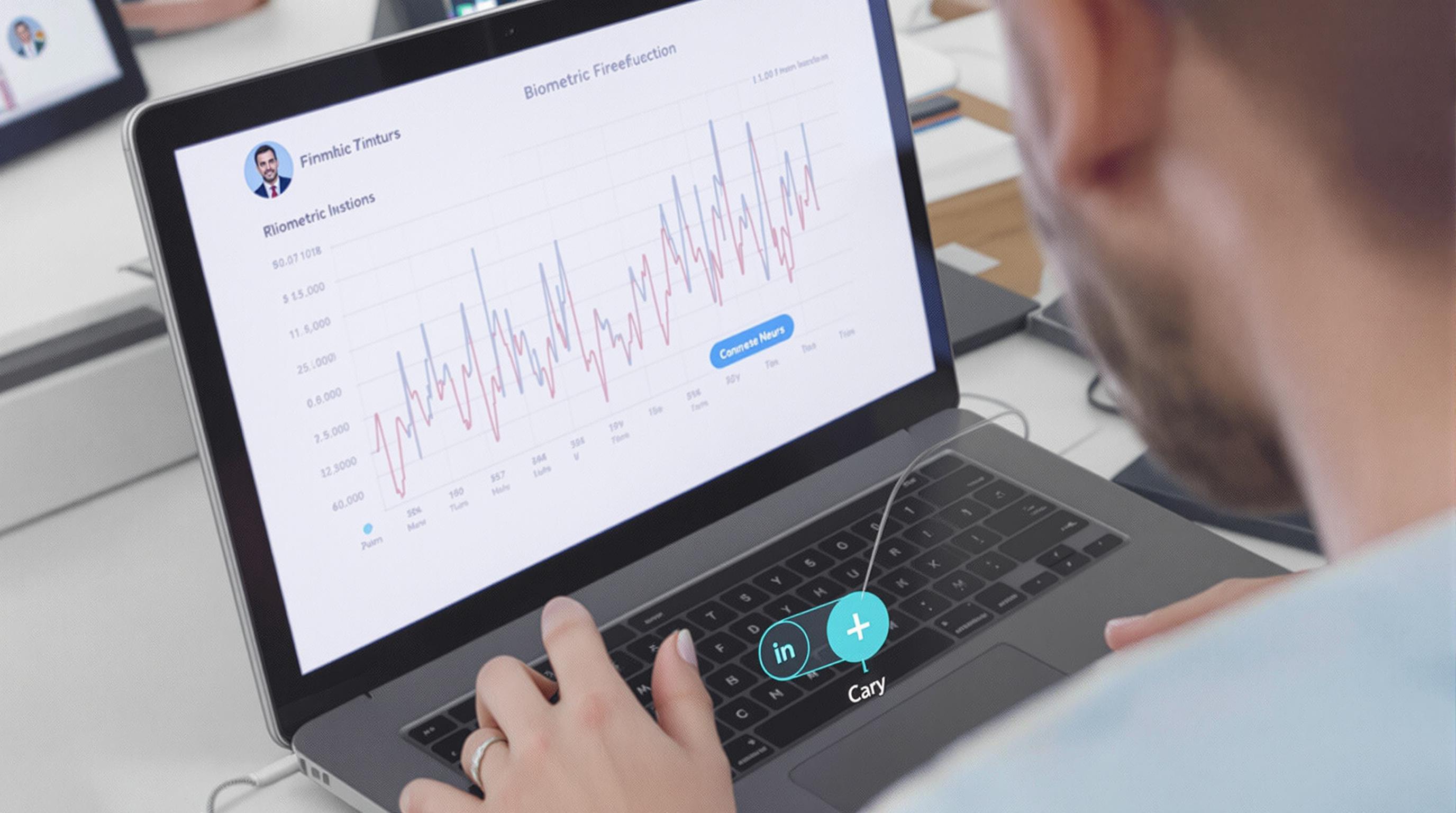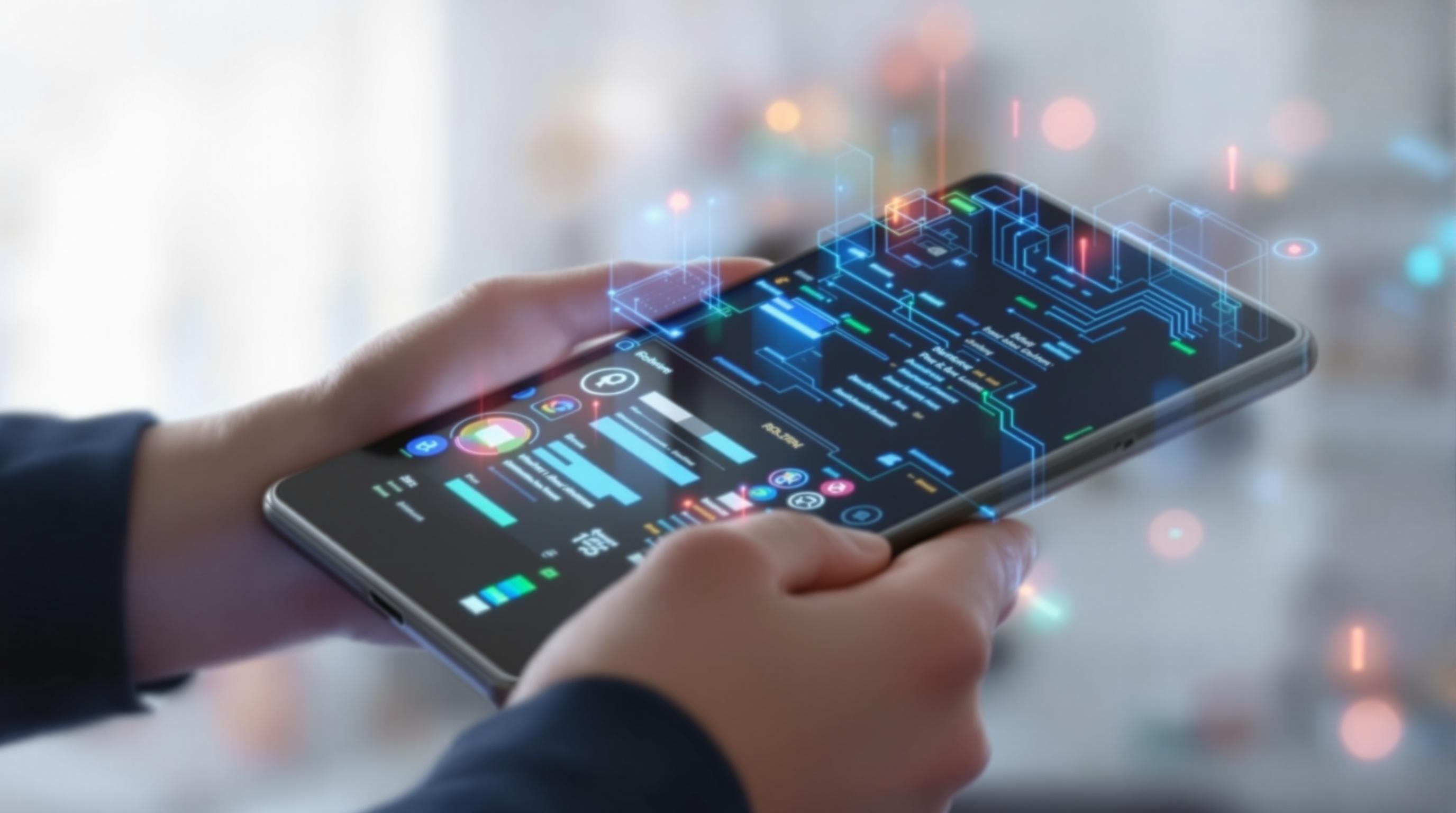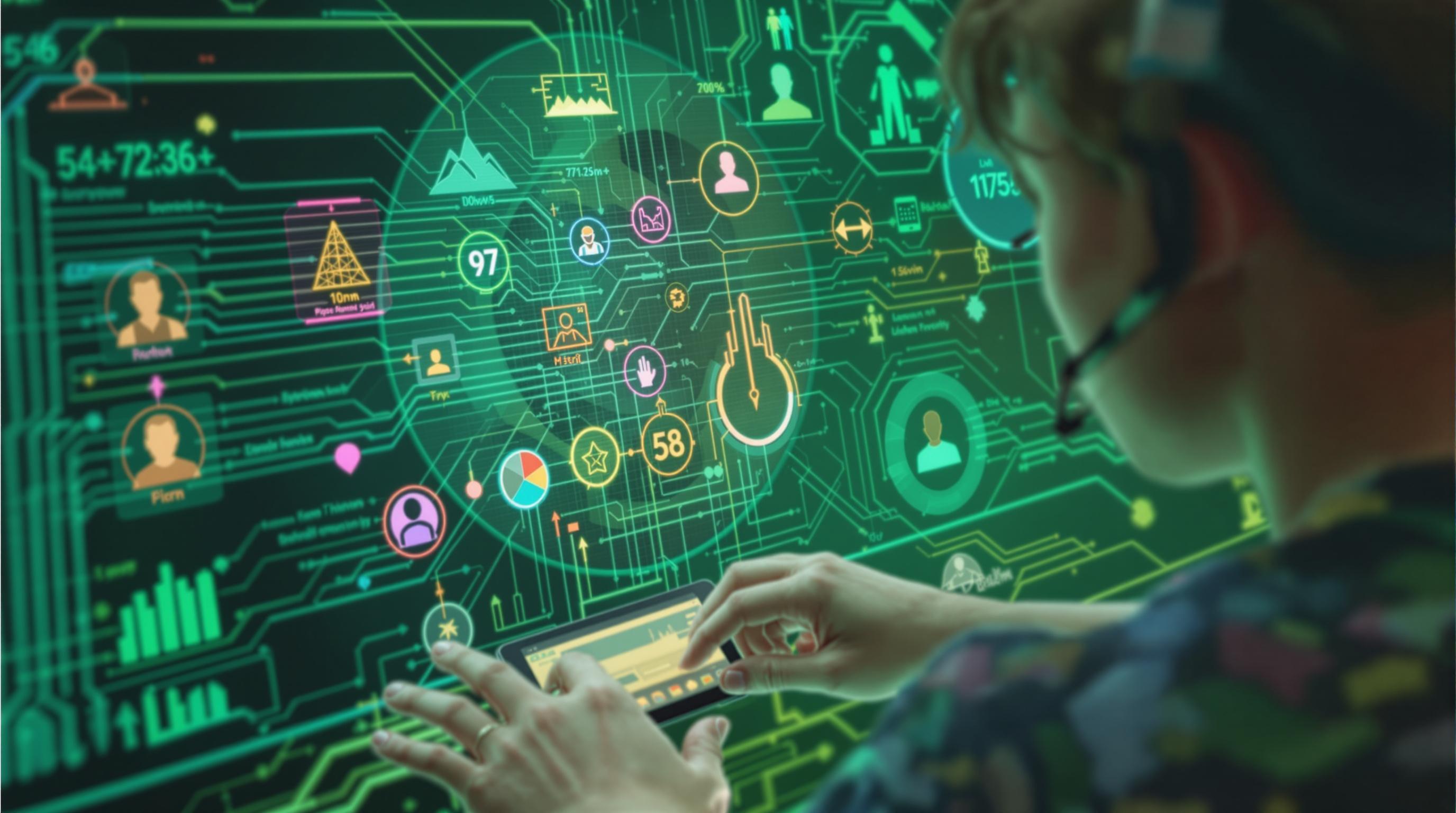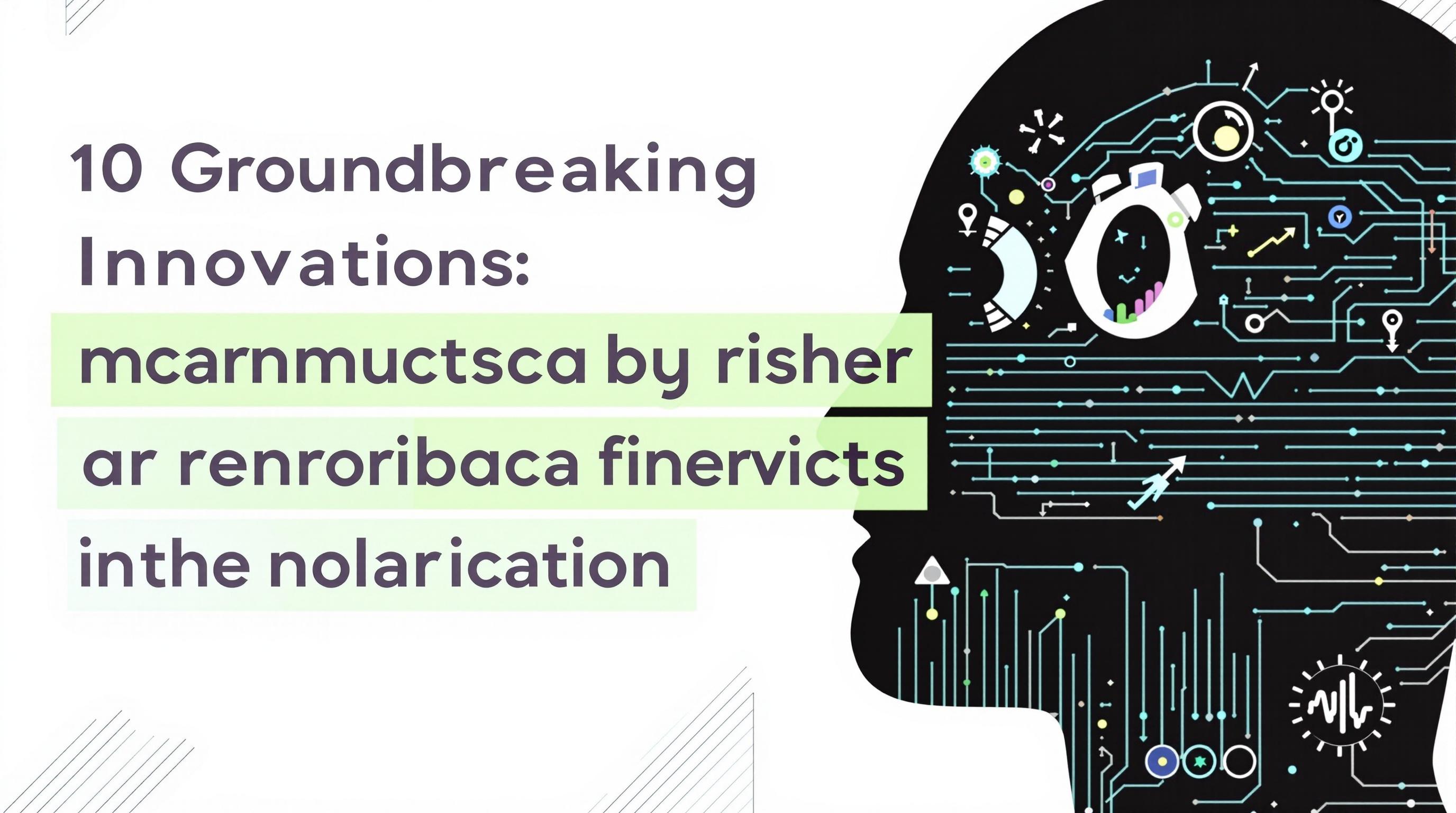Related Articles
- Uncharted Frequencies: The Surprising Role of Subcultures in Shaping Global Digital Landscapes
- Wired Whims: The Unexpected Role of Niche Online Communities in Shaping Global Digital Trends
- Fragmented Signals: Exploring the Shadows of Digital Divide in Emerging Economies and Its Impact on Global Unity
- Decoding the Invisible: How Microbial Communication Could Revolutionize Digital Interactions
- Cryptic Channels: How Encrypted Messaging Platforms Are Reshaping Trust and Transparency in Online Interactions
- Mysterious Modes: The Rise of Cryptographic Channels in Secret Online Dialogues and Their Hidden Impacts
11 Intriguing Innovations: Discover How Biometric Feedback Systems Are Shaping the Future of Remote Interaction Tools
11 Intriguing Innovations: Discover How Biometric Feedback Systems Are Shaping the Future of Remote Interaction Tools
11 Intriguing Innovations: Discover How Biometric Feedback Systems Are Shaping the Future of Remote Interaction Tools
Introduction to Biometric Feedback
As technology advances, the way we interact remotely is evolving at an unprecedented pace. Biometric feedback systems are at the forefront of this transformation, leveraging human biological data to enhance communication and connection. These systems gather information such as heart rate, posture, and facial expressions to inform digital interactions, creating a more empathetic and intuitive online experience.
Companies across various sectors are beginning to explore how biometric feedback can enhance user engagement, improve remote collaboration, and enrich customer service. For example, by examining facial expressions and vocal tones, software can provide real-time emotional analysis to adjust user experience accordingly. This innovation is geared towards making remote interactions feel more real and personal, bridging the gap that distance can create.
Biometric feedback technologies are not just limited to corporate environments; they are also being integrated into educational settings, mental health applications, and virtual reality experiences. The potential for diverse applications raises significant questions about ethical implications and privacy concerns, which will require careful consideration as this technology matures.
1. Enhanced Virtual Meetings
The rise of telecommuting has made virtual meetings a staple of the corporate world. Biometric feedback systems can take these meetings to the next level by analyzing participants' engagement levels through facial recognition technology. By detecting when someone is dozing off or losing interest, the platform can prompt moderators to switch topics or change the presentation style.
Moreover, emotional analytics can provide insights into team dynamics that are not immediately visible. For example, if several team members display signs of stress or anxiety, managers can tailor their approach to alleviate tension and promote a more collaborative atmosphere. This explicit understanding of emotional cues can foster stronger team bonds, even when miles apart.
As remote work continues to be a norm, the integration of biometric feedback into virtual meeting tools offers an avenue to maintain productivity while nurturing the emotional well-being of team members—leading to enhanced performance and satisfaction.
2. Personalized Customer Interactions
Businesses are increasingly employing biometric feedback systems to understand customers better during online interactions. By analyzing facial expressions, voice intonations, and even physiological responses, brands can tailor their services to meet consumer needs in real-time. This leads to a more personalized shopping experience, enhancing customer satisfaction and retention.
For instance, e-commerce platforms are testing technologies that gauge customer reactions to products through video chats. If a customer appears distressed or confused while navigating the site, the system could automatically offer additional help or suggest alternative products that may suit their needs better. This application goes beyond mere convenience; it shows a real understanding of consumer behavior.
Moreover, integrating biometric feedback into customer service ensures a more empathetic contact with clients. Representatives can adjust their tone or approach based on the emotional state of the customer, resulting in a more human-centric interaction. This blend of technology and emotional intelligence propels commercial engagement into a new era.
3. Health Monitoring in Remote Care
The healthcare industry has long been exploring remote patient monitoring, and biometric feedback systems represent a significant advancement in this field. These technologies can continuously track a patient's vital statistics and emotional state, alerting caregivers or medical professionals if anomalies are detected. With real-time data at their fingertips, healthcare providers can intervene swiftly as needed.
Telehealth services that incorporate biometric feedback allow practitioners to conduct virtual consultations while simultaneously assessing patients’ emotional health. For example, video consultations can capture subtle signs of distress, enabling doctors to address mental health alongside physical conditions. Thus, the integration of both physical and emotional monitoring enhances comprehensive care.
As the demand for remote healthcare rises, innovations in biometric feedback will play a crucial role in fostering trust and improving health outcomes. These tools allow for a holistic approach to patient care, ensuring that emotional well-being is prioritized alongside traditional medical treatment.
4. Enhanced Learning Experiences
Educational institutions are beginning to leverage biometric feedback systems to create more engaging remote learning environments. By monitoring students' emotional responses and engagement levels during virtual classes, educators can adapt their teaching methods in real time. Such adaptability is crucial for maintaining student motivation and retention in often challenging remote settings.
For example, utilizing wearable technology, teachers can obtain feedback on which teaching methods resonate best with students. If the data shows that many students exhibit stress or lack of engagement, instructors can pivot their strategies to incorporate more interactive or gamified elements in their lessons.
This dynamic interaction promotes a sophisticated learning environment where both academic instruction and emotional well-being are prioritized. By harnessing biometric feedback, the potential to deliver personalized education is vastly expanded, catering to both the intellectual and emotional needs of students.
5. Immersive Virtual Reality
Virtual reality (VR) has already begun transforming entertainment and training industries, but the integration of biometric feedback systems could take these experiences to new heights. By tracking user reactions—such as expressions, heart rate, and even physiological stress levels—VR applications can create contexts that respond dynamically to the user’s emotional state.
For instance, in simulations for training professionals like pilots or surgeons, biometric feedback can help adjust the difficulty level based on the user’s stress and focus. If anxiety levels rise, the system can provide calming interactions or simplify tasks to prevent overwhelming the trainee, leading to more effective learning outcomes.
Furthermore, in the realm of entertainment, biometric feedback can enhance storytelling experiences. Developers can craft narratives that adapt based on the viewer’s emotional engagement, providing a uniquely personalized journey that maximizes engagement. The fusion of VR and biometric feedback opens the door to limitless possibilities in immersive experiences.
6. Sport and Fitness Monitoring
In the world of sports and fitness, biometric feedback systems are revolutionizing how athletes train and improve their performance. By harnessing data from wearables that monitor heart rates, muscle tension, and even emotional states, coaches can personalize training regimens tailored to athletes' needs. This move towards data-driven performance optimization is quickly becoming a cornerstone in elite sports.
Analyzing biometric data allows coaches to detect fatigue and prevent overtraining, promoting athlete safety and longevity. By understanding an athlete’s mental state, trainers can apply psychological approaches that maximize performance potential during critical competitions.
The applications extend beyond professional sports; fitness enthusiasts are also benefiting from biometric feedback technologies. Mobile apps use this data to create tailored workout plans and mental coaching strategies, driving motivation and improving overall well-being. This personalized approach creates a more engaging fitness experience for users worldwide.
7. Enhanced Financial Services
The financial services sector is beginning to adopt biometric feedback systems to enhance client interactions and secure transactions. By analyzing individual emotional responses during consultations, advisors can gauge comfort levels, helping to tailor investment suggestions accordingly. This human-centric approach is becoming increasingly essential in building trust in an often impersonal industry.
Moreover, biometric technologies enhance security measures for remote transactions. For instance, financial institutions can implement systems that analyze biometric data for fraud detection, recognizing patterns in clients' behavior to flag unusual activity. Such proactive measures drastically improve the safety of digital interactions.
As digital banking continues to grow, the integration of biometric feedback systems will fundamentally reshape how financial institutions interact with their clients. This approach not only serves to solidify customer relationships but also protects the integrity of financial transactions in an increasingly digital world.
8. Redefining Marketing Strategies
Marketers are always searching for innovative ways to connect with potential customers, and biometric feedback systems offer unprecedented insights into consumer behavior. By analyzing emotional responses to advertisements and brand messaging, marketers can refine their strategies to maximize engagement. This data-driven approach allows for a more targeted marketing effort, enhancing campaign effectiveness.
For instance, monitoring facial expressions during focus group studies can reveal genuine reactions to products, allowing brands to tailor their offerings more closely to consumer preferences. Combining this emotional data with demographics provides entrepreneurs with impactful content that resonates with the audience on a deeper level.
This shift toward understanding the emotional aspect of consumer metrics stands to revolutionize the marketing industry, enabling brands to create more authentic relationships with their audience. By harnessing biometric feedback, companies can engage consumers in ways that exceed passive consumption, turning advertisements into meaningful interactions.
9. Gaming Enhancement
The gaming industry has always been at the forefront of using technology to enhance user experience, and introducing biometric feedback systems elevates this to an entirely new level. By tracking players' emotional responses during gameplay, games can adapt in real time, creating experiences that resonate with individual players. Through this, developers can foster more engaging and immersive gameplay.
For instance, if a player shows signs of frustration during a tough game level, the system could moderate the difficulty or provide motivational prompts to alleviate stress. This responsive interaction not only enhances gaming enjoyment but can also be utilized to improve player retention long-term.
Moreover, the potential for biometric feedback systems in gaming extends into narrative-driven experiences. Games that adapt storyline progression based on player reactions can offer unique narratives, ensuring that no two gaming experiences are identical, thereby making the interactions significantly more engaging.
10. Ethical Concerns and Privacy Issues
As exciting as biometric feedback systems are, they also raise crucial ethical concerns regarding privacy and data security. With technologies sensitive to personal physiological data, questions arise about ownership and how this information is used. Transparency is vital; consumers need to be informed and comfortable with how their data is being collected and managed.
Moreover, the potential for misuse exists, with companies that leverage biometric data for manipulation or exploitation posing serious threats. Policymakers must actively work to create regulations that safeguard users against such abuses and ensure respectful and ethical treatment of personal data.
As biometric feedback systems continue to evolve and integrate into various sectors, addressing these concerns proactively will be paramount. Achieving a balance between innovation and privacy can lead to positive collective outcomes that benefit society as a whole.
Conclusion: The Path Ahead
The future of remote interaction tools relies heavily on the integration of biometric feedback systems. As different industries recognize their potential, applications are becoming more sophisticated and tailored to meet user needs. From enhancing virtual meetings to personalizing customer service, the applications are both diverse and exciting.
However, with great power comes responsibility. It is essential to navigate the ethical landscape with care, ensuring transparency, consent, and security are at the forefront of implementing these technologies. The evolution of biometric feedback systems offers immense possibilities for enriching human connection across distances, provided we approach these advancements with caution and integrity.
As we look to the future, continued collaboration among technologists, policymakers, and industry leaders will be vital in shaping an ethical framework for the responsible use of biometric feedback systems. With a resolute focus on inclusivity and empathy, the pathway forward can lead to innovations that truly enhance our remote interactions.




